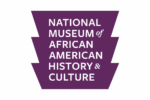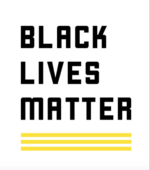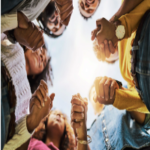Diversity, Equality, Cultural Competency
This Dia de los Muertos Lesson Plan was created by Vanderbilt University’s Center for Latin American Studies. This includes a comprehensive learning plan with art projects that students can create to supplement their learning. This lesson plan was originally written for 5th grade, but can be adapted for grades 3-12.
Content Learning Target: Students will be able to understand the cultural significance of Día de los Muertos traditions.
Language Learning Target: Students will be able to define Día de los Muertos and explain how the holiday honors the deceased.
El Día de los Muertos (Day of the Dead) is a day of celebration, particularly for the people in Mexico and Central America, and for many Mexican Americans in the United States. It is a day to honor and commemorate the lives of the dearly departed and to welcome the return of their spirits.
Learn all about this cultural holiday with free resources from the Smithsonian National Museum of the American Latino, including a Day of the Dead learning kit, virtual exhibitions, music, stories, videos, and more.
Juneteenth is a time for celebration and reflection with the whole family. For young children, the abstract concept of freedom and the hard history of slavery can be challenging to grasp. NMAAHC’s early childhood education team offers the following resources to support young children’s understanding and celebration of Juneteenth: a guide on how to talk about slavery and freedom in age appropriate ways, an activity to inspire hope and activism, and a children’s book and online resources list.
June 19, or Juneteenth, is a holiday that commemorates the day that Texas, the last Confederate state, learned about the Emancipation Proclamation — marking the end of slavery in the United States in 1865.
But as University of Pittsburgh historian Alaina Roberts notes, it’s important to remember that the emancipation of slaves didn’t actually happen in one fell swoop. Here’s information about talking to children about Juneteenth and why it is important to do so.
Kid Power is an interactive video platform for students in grades Kindergarten through 8th. Kid Power combines philanthropy and fun with mental health, social-emotional learning (SEL), child rights, and equity and access for all students.
Traumatic events do not exist in a vacuum. Like other social phenomena, they should be understood within the social and cultural context in which they occur.
Native Land Digital strives to create and foster conversations about the history of colonialism, Indigenous ways of knowing, and settler-Indigenous relations, through educational resources such as our map and Territory Acknowledgement Guide. We strive to go beyond old ways of talking about Indigenous people and to develop a platform where Indigenous communities can represent themselves and their histories on their own terms. In doing so, Native Land Digital creates spaces where non-Indigenous people can be invited and challenged to learn more about the lands they inhabit, the history of those lands, and how to actively be part of a better future going forward together.
Bring the celebration of Black History Month into your classroom with these activities, lesson plans, book resources, and interactive histories. Choose from several activities surrounding African American icons, slavery, the Civil Rights Movement, schools and integration, music and arts, and more.
Black Lives Matter, a Black-centered political will and movement founded in 2013, offers toolkits, reports, social media graphics, and other free resources to learn more about the movement to fight injustices for African Americans.
Use this resource published by Edutopia as a guide to equity and antiracism in classrooms and programs.
The Trauma and Learning Policy Initiative’s (TLPI) mission is to ensure that children traumatized by exposure to family violence and other adverse childhood experiences succeed in school. To accomplish this mission, TLPI engages in a host of advocacy strategies including: providing support to schools to become trauma-sensitive environments; research and report writing; legislative and administrative advocacy for laws, regulations, and policies that support schools to develop trauma-sensitive environments; coalition building; outreach and education; and limited individual case representation in special education where a child’s traumatic experiences are interfacing with his or her disabilities.
Use these tools produced by National Geographic to help provocate thinking, spur dialogues, and guide conversations regarding race, diversity, inclusion, and justice.










